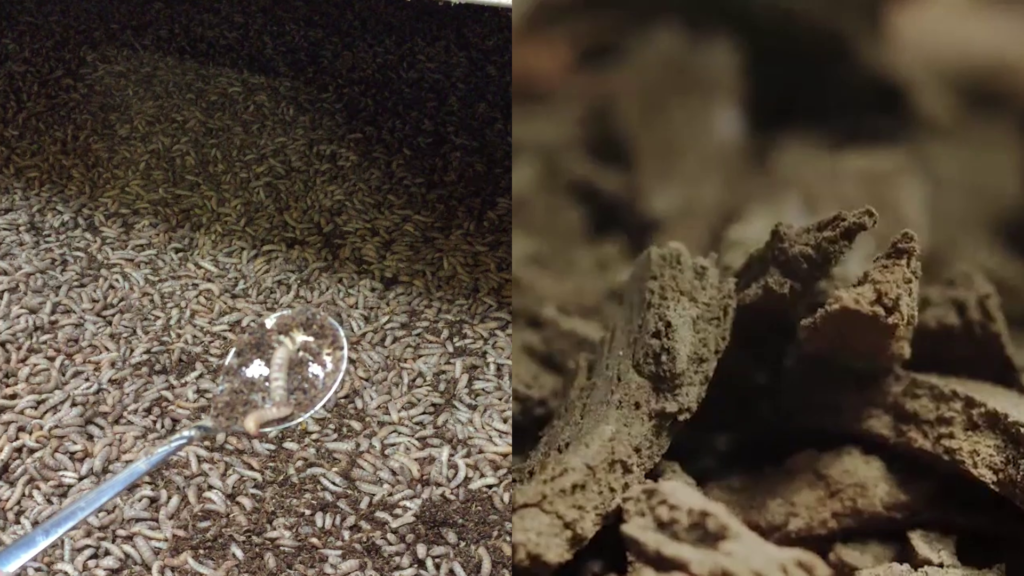
24. June 2021
INSECTS AS ANIMAL FEED – SUPPORTED BY REINARTZ
Protein production from insects for high-quality animal feed – an efficient and ecological alternative. CO2 balance of insects as well as the land and energy requirements for production speak for themselves. Production involves several stages, one of which is larvae fattening. The left image section shows Hermetia Illucens larvae (BSF) during rearing in the bioreactor.
But from the very beginning …
Insect larvae are rich in protein and full of essential amino acids. A perfect source for nutritious, healthy animal feed. The legal requirements for this are already partly in place: In aquaculture, they have been approved as feed throughout the EU since 2017. Insect food is also already a valuable alternative for dogs and cats. Approval at EU level to feed the insect meal to livestock is currently under review. It is expected that the use of insect proteins in poultry and pig feed will be allowed in autumn 2021.
An alternative feed source that can significantly improve our environmental footprint …
Back to insects and specifically to the black soldier fly (Hermetia Illucens): it goes through a so-called holometabolic life cycle, which consists of five development stages and lasts only 12 days before the adult stage and thus the maximum body size is reached.
Larvae fattening takes place in specially designed bioreactors. Important factors here are the substrate to be used, temperature regulation of environment and substrate, and the control of other influencing factors.
Using a sophisticated separation method, the larvae are then gently separated from the remaining substrate and prepared for processing in subsequent steps. The remaining substrate is used to produce insect fertilizer.
After devitalization, drying and optional pre-conditioning, high-quality insect meal and insect fat are obtained from the dried larvae with the help of REINARTZ machinery and system components. This is followed by post-processing of the obtained products, such as cooling of the insect meal, if necessary – depending on the production scale, and sedimentation or filtration of the insect fat to separate the remaining solids.
REINARTZ has been working on insect processing for many years and is one of the leading experts in this field. We provide support throughout the entire production process – starting with project planning, through demand-oriented engineering packages, to high-quality equipment individually developed to meet customer requirements, as well as implementation and commissioning. Around the globe, we work together with our customers to develop the solution package perfectly tailored to their needs.


